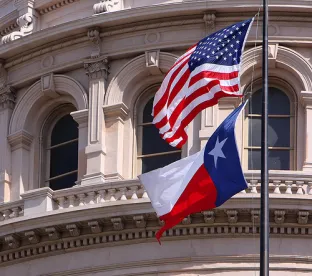In a move sure to generate controversy, confusion, and litigation, on October 11, 2021, Texas Governor Greg Abbott issued an Executive Order effectively prohibiting all private businesses from requiring employees or customers be vaccinated against COVID-19.
Executive Order GA-40 (the “Order”) states that no “entity in Texas can compel receipt of a COVID-19 vaccine by any individual, including an employee or…consumer, who objects to such vaccination for any reason of personal conscience, based on a religious belief, or for medical reasons, including prior recovery from COVID-19.” Previously—and also via executive order—only Texas public/government agencies and school districts were prohibited from implementing vaccine mandates.
The Order’s sweeping language allows individuals to refuse vaccinations on grounds of “personal conscience” and, in addition, expands the basis for a medical exemption to “prior recovery” from COVID-19. This is a marked expansion from the preexisting legal consensus, which allowed exemptions only in the case of a sincerely-held religious belief or ADA-qualifying disability.[1] Absent further guidance, the undefined phrase “personal conscience” could allow employees to refuse vaccination on essentially any grounds.[2]
The Order provides enforcement via fines. Specifically, non-compliant entities may be fined up to $1,000 per offense, while jail time is specifically excluded as a penalty. The Order’s language makes no exception for health-care providers such as hospitals and other related entities.
The Order also contemplates its own sunset upon the passage of overlapping legislation. Specifically, in the Order, Governor Abbot states that he is “adding this issue to the agenda” for an upcoming session of the Texas legislature, and that he “will rescind this [Order] upon the effective date of such legislation[.]”
Notably, the Order contradicts both the Governor’s own statements on the rights of private businesses within the state, and legal consensus regarding the ability of employers to mandate vaccinations in most cases. For example, in August, Governor Abbot issued an executive order banning public and governmental entities from enacting vaccine mandates, but explicitly left private entities to make their own decisions regarding the matter. At that time, a spokesman for the Governor’s office also commented that private businesses would be left to make their own decisions regarding the matter. The Order essentially closes that loophole.
The Order also contravenes existing legal precedent within the state regarding employer vaccine mandates. For example, in June 2021, the Federal District Court for the Southern District of Texas dismissed a lawsuit by 117 employees of Houston Methodist Hospital; who claimed Methodist’s policy requiring employees to be vaccinated against COVID-19 amounted to wrongful termination under the law, because the vaccine(s) are “experimental and dangerous.” Bridges v. Houston Methodist Hosp., CV H-21-1774, 2021 WL 2399994, at *1 (S.D. Tex. June 12, 2021). In no uncertain terms, the Order squarely contradicts the holding in Bridges.
The Order also makes explicit comments regarding the federal government and, more specifically, the Biden administration. Specifically, the Order claims that the “Biden Administration is now bullying many private entities into imposing COVID-19 vaccine mandates, causing workforce disruption[.]”
The immediate impact of the Order on businesses who implemented vaccine mandates is unclear—especially in light of conflicting Federal mandates. For example, Texas-based Southwest Airlines and American Airlines have stated publicly that—regardless of the Order—they will continue to implement plans requiring employees be vaccinated, citing federal mandates for contractors and the forthcoming OSHA rule for private business with 100 or more employees. While nothing is certain, it is somewhat likely that OSHA rules and regulations would preempt the Order. But Texas businesses with fewer than 100 employees would still be subject to the Order, or future, related State legislation.
Regardless, in light of the Order’s language, any Texas business entity that previously required employees or customers be vaccinated should seek counsel and reexamine its accompanying policies or risk non-compliance with the Order. At a minimum, Texas businesses should—for now—consider adding exemption language to vaccine policies that mimic the Order’s “personal conscience” and “prior recovery from COVID-19” carve outs.
FOOTNOTES
[1] Full COVID-19 recovery had not previously been considered a disability or medical condition necessitating an exemption.
[2] The phrase “personal conscience” is also not well-defined or widely used in Texas law. Accordingly, looking to State caselaw for guidance is largely unhelpful.




 />i
/>i

